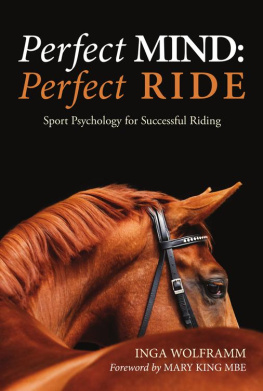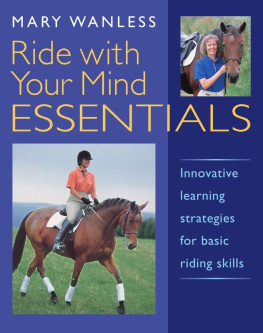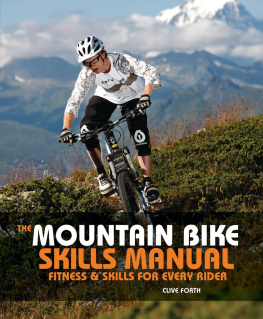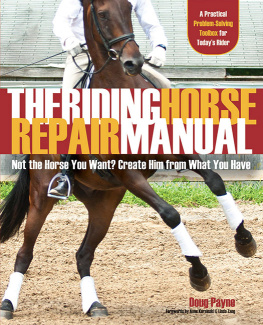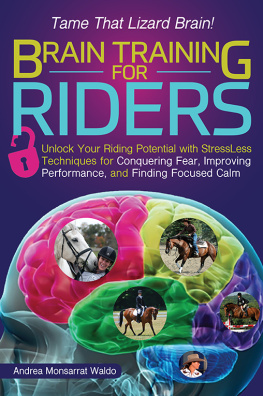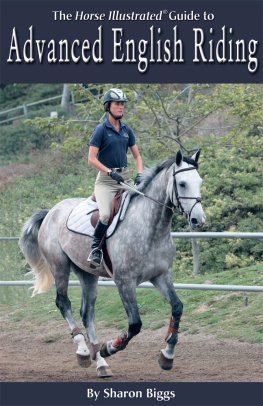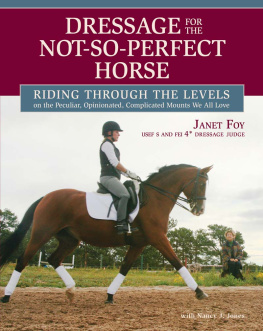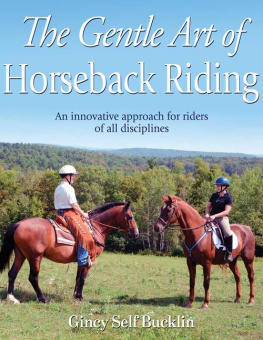H ow do you become a successful rider? Ive been asked this question many times and its never easy to come up with an answer. The rider, the horse, the training, the facilities, the support team eventually all these elements need to come together to form a whole.
And yet, Im convinced that it all starts with the rider. First and foremost, riders must want to be around horses and do their best for them. If they want to go all the way, riders have to live and breathe the sport. Looking back at my own life as a rider, Ive been passionate about horses for as long as I can remember and I never wanted to do anything else. Working with young horses, bringing them on, step by step, and developing their talents so that one day, maybe, Im able to compete with them at the highest level, thats a real privilege and one I wouldnt give up for the world. What is more, I believe that if my horses are happy, if they enjoy their work, trust in me as their rider and have been brought on to cope with whats ahead, theyll end up showing their true potential.
As a result, I believe that, as riders, well need to work on ourselves, every second of every day. Being patient and remaining calm and quiet at all times, regardless of whether were going for a hack around the block or are about to perform at a major competition, whether were at the top of our game or things arent working out quite the way wed hoped. Anyone who wants to get to the top of their chosen discipline will have to deal with the inevitable highs and lows. They are all part of the experience: one day youll win an event and the next youll hit the deck.
In my mind, in order to cope with the uncertainties, the ups and downs, with the successes and failures, with winning and losing, you first of all should know what you want. You should have a dream and be single-minded about achieving it. When I look back at my own career, I can honestly say that Ive always been exceedingly determined. I dont think I would have got to this level if I didnt have this drive to win. But I am also very calm and very level headed with an even temperament. Theres no point in getting cross or upset when things go wrong; youre going to have to, quite literally, ride out whatever is thrown in your path.
In my view, those are also key skills when it comes to dealing with the pressure of competing. Lots of riders feel nervous before an important event, but its how you deal with those pre-competitive flutters that is going to make the difference. In order to be able to do what you have to do youll have to learn to control that anxiety. Youll need to develop a system that works for you. To me, being very organised helps. On the morning of a cross-country day, I want to be sure that Ive got everything in place, that Ive got my clothes, my stop watch, everything in piles, so I know that theres no panic at the last minute. Then I like to do the last course walk on my own, making up my mind how I am going to ride it. I always keep my thoughts positive, and see myself doing well in my minds eye.
But even if things end up going wrong or youve made a mistake, dont get hung up about it. Once again, its part and parcel of the sport. It is how you deal with these situations that is going to determine whether youll end up doing well or whether youll fall to pieces. Its essential not to dwell on what has happened. Instead, act on the reason why the mistake happened, focus on whats ahead and carry on positively.
It all comes down to this: as riders, we need to be in control of ourselves, of our thoughts and emotions, at all times. We need to be in control of our minds. Only then can we be in control of our bodies too, and ride our horses in the way they deserve to be ridden.
This book will help you to achieve just that. Itll teach you the mental attitudes and skills you need to become the very best you can be. Itll help you achieve the perfect mind for a perfect ride.
Mary King, Olympic three-day eventer
ATTITUDES THAT
KEEP YOU GOING
WHY SPORT PSYCHOLOGY MATTERS
I ts the year 1991, a few days after the four-star eventing competition at Burghley, UK. A 23-year old Pippa Nolan eagerly rifles through the pages of the British magazine Horse & Hound. For the first time shed competed two horses at that level and shes hoping for glowing reviews of her fourth and fourteenth place. Imagine her disappointment when shes greeted by the following comment by Captain Mark Phillips, former Olympian and eventing aficionado:
two young ladies (referring to Pippa Nolan and Lucinda Murray) who wont be reliable at top level until they go back to basics and learn to ride across country properly.
What a blow to a young riders confidence.
Fast forward to 2003, and Pippa Nolan, now Pippa Funnell, becomes the first and only rider to date! to win the Rolex Grand Slam; a feat that involves winning not one, but the three consecutive four-star events: Kentucky, Badminton and Burghley. Since that fateful comment twelve years ago, Pippa Funnell has turned herself into one of the best eventing riders in the world.
How did she do it? At the heart of her success lies a combination of talent, incredibly hard work, commitment to the sport, believing in herself, perseverance in the face of failure and coping under pressure. In a word, Pippa Funnell became mentally tough. She learned how to use mental skills to tremendous effect.
As a result, Pippa Funnell has been one of the most vocal riders about the value of sport psychology throughout much of her career, crediting much of her success to the honing of her mental skills. In her autobiography, she sums up the problem as well as the solution.
One of the conditions for receiving Lottery money is that riders are expected to take advice from specially appointed people like nutritionists, physiotherapists and sport psychologists. () Sport psychology was pretty new then (ed: 1998) and most riders felt it was completely unnecessary; in fact all my friends thought it was hideously embarrassing and gave it a wide berth. But I wasnt embarrassed; I just pricked up my ears. I have always been open-minded to suggestions because I feel that if anything, however minute, can help me, its a bonus.
And what a bonus it turned out to be.
Over the past few decades researchers have shown in literally hundreds of studies that (sport) psychological concepts such as self-confidence, the ability to perform under pressure, handle setbacks effectively, commitment and perseverance are important contributors to competitive performance. Those performers (riders), who are able to hold it together mentally when the pressure is on almost always end up on top. What is more and despite what many riders still think the level someone rides at doesnt even come into it.
Surprised? Dont be.
You see, its like this: regardless of whether youre just starting out or are a seasoned professional, the idea of proving your worth in front of any kind of audience, at an event, a show, or even at home, can be nerve-wracking.
The reasons are straightforward enough. In competition, you and a bunch of other riders are thrown into the ring together and expected to battle it out to see who comes out on top. But even if youre only riding at home, the moment someone decides to stand next to the arena to watch, theyre highly likely to have an opinion of how youre doing. And then theres you. Youve invested so much time, effort and money into the sport. Youve sacrificed other areas of your life, be that school, friends, recreational activities or even a steady relationship for the sake of that one, all-consuming love. Your horses and your sport. Now you want to prove it hasnt been for nothing. Never mind how much pleasure you derive from being with your horse, from training and riding every day, deep down, you still want other people to approve of what youre doing. You want external validation and a sure-fire way to get it is to do well in competition (or to have lots of people telling you that youre amazing).

